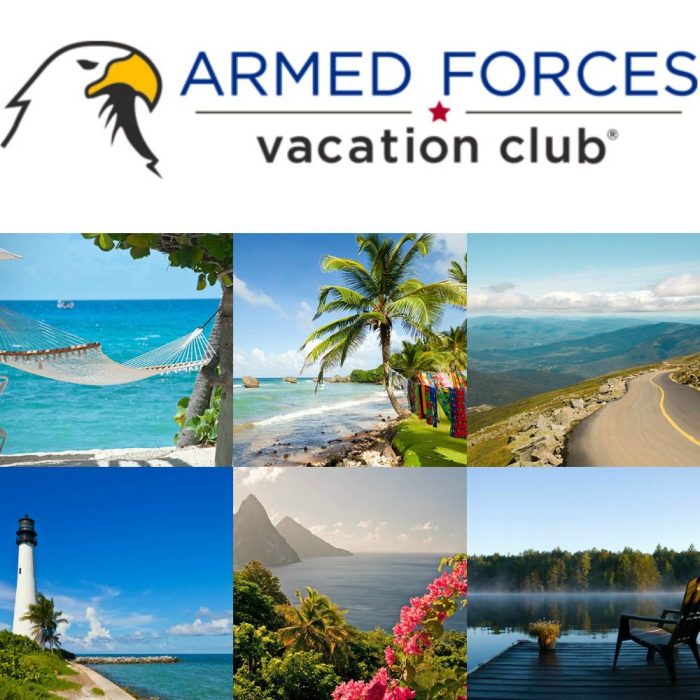Military Vacation Website: Planning the perfect getaway for those who serve requires a deep understanding of their unique needs and preferences. This isn’t just about booking flights and hotels; it’s about crafting experiences that cater to the specific demands of military personnel and their families, factoring in factors like deployment schedules, budget constraints, and the desire for relaxation and rejuvenation after rigorous service.
Building a successful platform necessitates a multi-faceted approach, encompassing user-centric design, strategic marketing, robust security measures, and meticulous attention to legal compliance.
From identifying the ideal target audience across different military branches to developing a secure booking system integrating military-specific discounts, the creation of a comprehensive Military Vacation Website demands careful consideration. This includes crafting a compelling content strategy, ensuring website accessibility, and prioritizing data privacy and security. The ultimate goal is to create a trusted platform offering seamless booking experiences and providing invaluable resources to military personnel and their families seeking well-deserved vacations.
Target Audience Identification

A successful military vacation website requires a precise understanding of its target audience. This involves not only identifying broad demographic characteristics but also delving into the nuanced travel preferences and specific needs of service members across different branches. Failure to accurately profile this audience will result in a website that fails to resonate and ultimately, underperforms.The primary target audience consists of active-duty military personnel, National Guard, Reservists, and their families.
Demographics will vary, encompassing a wide range of ages, ranks, income levels, and family structures. However, common threads include a shared experience of military life, often involving frequent relocations, demanding schedules, and a unique set of priorities when it comes to leisure time.
Demographic and Travel Preference Analysis
This group’s travel preferences are shaped by factors such as deployment schedules, operational tempo, and the availability of leave. Many prioritize budget-friendly options, value and seek destinations offering relaxation and recreation opportunities, and often prefer shorter trips due to limited vacation time. Access to reliable and secure transportation, particularly to and from military bases, is a critical factor.
Furthermore, the need for child-care solutions and family-friendly activities significantly influences their destination choices.
Comparative Needs Across Military Branches
While the overarching needs are similar, subtle differences exist across the different branches. Army personnel, often stationed in more remote locations, may prioritize easily accessible domestic destinations. Navy personnel, frequently based near coastal areas, may show a greater preference for cruises or beach vacations. Air Force members, often stationed at larger bases with better access to airports, might exhibit a greater willingness to travel internationally.
Marines, known for their rigorous training and deployments, may prioritize shorter, more action-packed vacations. These are generalizations, of course, and individual preferences will always vary.
Ideal Customer Persona
Consider “Sergeant Major Jessica Reyes,” a 38-year-old Army officer stationed at Fort Bragg, North Carolina. She has two children, ages 8 and 10, and a husband who also serves in the Army. Her annual leave is limited, and she prioritizes affordable, family-friendly destinations within driving distance of her base. She values reliable transportation options and secure accommodations, and is actively seeking vacation packages that offer a balance of relaxation and structured activities for her children.
She is tech-savvy and prefers booking her vacations online.
Survey Questionnaire Design
A comprehensive survey is crucial to validate assumptions and gather granular data. The questionnaire should include sections on demographics (age, rank, branch, family status, etc.), preferred vacation types (adventure, relaxation, cultural, etc.), budget constraints, travel frequency, preferred modes of transportation, important factors when selecting a vacation destination (safety, cost, activities, etc.), and technology usage preferences for booking vacations. Open-ended questions allowing for qualitative feedback will provide richer insights.
For example, a question like: “What are your biggest challenges when planning a family vacation?” would elicit valuable data beyond simple multiple-choice options. The data gathered will inform website design, package offerings, and marketing strategies.
Website Design and Aesthetics

A successful military vacation website must strike a balance between showcasing exciting travel destinations and maintaining a respectful and professional tone appropriate for its target audience. The design should convey trustworthiness, reliability, and a clear understanding of the unique needs and preferences of military personnel and their families.The visual style should project a sense of calm and reassurance, counterbalancing the often-stressful nature of military life.
This can be achieved through careful consideration of imagery, color palette, and typography.
Visual Style and Brand Identity
The ideal visual style for a military vacation website prioritizes high-quality photography and a clean, uncluttered layout. Imagery should depict relaxing and rejuvenating scenes, focusing on activities that appeal to a broad range of interests, such as family-friendly beaches, adventurous outdoor pursuits, and culturally enriching experiences. A muted color palette, incorporating shades of blue, green, and beige, can create a sense of tranquility and sophistication.
Typography should be legible and easy to read, employing a clean sans-serif font for body text and a more refined serif font for headings, creating a professional yet approachable feel. The overall aesthetic should be modern and contemporary, but not overly trendy, to ensure lasting appeal.
Homepage Layout
The homepage should be designed to immediately engage visitors and clearly communicate the website’s purpose. A large, high-resolution hero image showcasing a breathtaking vacation destination will serve as a compelling visual focal point. Below the hero image, a table using a responsive four-column layout will effectively present featured destinations. Each column will contain a smaller, high-quality image, a concise destination description, and a prominent call-to-action button (“Learn More” or “Book Now”).
This layout ensures efficient use of screen space and allows for easy navigation across various devices.
Accessible Design Elements
Accessibility is paramount. The website must adhere to WCAG (Web Content Accessibility Guidelines) standards to ensure usability for all visitors, including those with disabilities. This includes providing alternative text for all images, using sufficient color contrast between text and background, ensuring keyboard navigation, and offering options for adjusting font size. Captions and transcripts for videos are also essential.
The use of ARIA attributes for enhanced accessibility should be implemented throughout the website.
High-Quality Photography
High-quality photography is crucial for showcasing vacation destinations effectively. Images should be professionally shot, exhibiting excellent lighting, composition, and emotional impact. For example, an image of a family enjoying a beach vacation should be brightly lit, showcasing the vibrant colors of the ocean and sand, with a carefully composed shot that emphasizes the family’s joy and relaxation. Similarly, a photograph depicting a serene mountain landscape should utilize soft, natural lighting to highlight the majestic beauty of the scenery and evoke a sense of peace and tranquility.
The use of professional photography will significantly enhance the website’s visual appeal and encourage user engagement. The emotional impact of the imagery should be carefully considered to create a sense of aspiration and desire in the viewer.
Technical Aspects and Security: Military Vacation Website
Building a robust and secure website for military personnel seeking vacations requires a multifaceted approach encompassing stringent security measures, reliable infrastructure, and a user-friendly interface. Neglecting these aspects can lead to significant financial losses, reputational damage, and, critically, compromise sensitive personal data. This section details the essential technical components and security protocols necessary for a successful military vacation website.
Website Security and Data Privacy
Protecting user data is paramount. Military personnel often handle sensitive personal and financial information, making robust security measures non-negotiable. Implementation should include, at minimum, HTTPS encryption for all website traffic, regular security audits to identify and patch vulnerabilities, and adherence to relevant data privacy regulations such as GDPR and CCPA. Multi-factor authentication should be implemented for user accounts, adding an extra layer of protection against unauthorized access.
Furthermore, a comprehensive data breach response plan should be in place, outlining procedures for handling potential incidents and notifying affected users promptly. Failure to adequately secure user data could result in significant legal liabilities and irreparably damage the website’s reputation.
Secure Payment Gateway Integration
Integrating secure payment gateways is crucial for processing online bookings. Reputable payment processors like Stripe, PayPal, and Square offer robust security features, including encryption and fraud detection tools. The chosen gateway should comply with industry standards like PCI DSS (Payment Card Industry Data Security Standard), ensuring the secure handling of credit card information. The integration process involves setting up a merchant account, configuring the payment gateway within the website’s CMS, and testing the functionality thoroughly to ensure seamless transactions.
A clear and transparent checkout process, emphasizing the security measures in place, will build user trust and encourage bookings. Failure to properly integrate and secure payment processing will expose the website to significant financial risks and damage user confidence.
Website Technical Infrastructure
The website’s technical infrastructure forms the backbone of its operation. A reliable hosting provider is essential for ensuring consistent uptime and performance. Cloud-based hosting solutions, such as Amazon Web Services (AWS) or Google Cloud Platform (GCP), offer scalability and redundancy, minimizing downtime risks. A clearly defined domain name, registered through a reputable registrar, provides a unique online identity.
The choice of a Content Management System (CMS), such as WordPress or Drupal, impacts ease of content management, updates, and overall website functionality. The CMS should be chosen based on the website’s specific needs and the technical expertise of the development team. A well-structured infrastructure ensures the website remains accessible, responsive, and secure. Choosing unreliable infrastructure components can lead to significant downtime, impacting user experience and potentially damaging the business.
Website Maintenance and Update Checklist
Regular maintenance and updates are crucial for maintaining website security and performance. This includes:
- Regular security scans for vulnerabilities.
- Prompt patching of identified vulnerabilities.
- Backups of website data and files.
- Regular software updates for the CMS, plugins, and themes.
- Performance monitoring and optimization.
- Content updates and fresh content additions.
A documented maintenance schedule ensures consistent upkeep, minimizing the risk of security breaches and performance issues. Neglecting regular maintenance can lead to outdated software, increased vulnerabilities, and a diminished user experience.
Legal and Compliance
Launching a military vacation website requires meticulous attention to legal and compliance matters to ensure smooth operation and avoid potential liabilities. Navigating the complex landscape of data protection, advertising regulations, and travel industry licensing demands a proactive and informed approach. Failure to comply can result in significant financial penalties and reputational damage.Data protection regulations, such as GDPR and CCPA, are paramount.
These regulations dictate how personal data collected from users—including names, addresses, payment information, and travel preferences—must be handled, stored, and protected. Non-compliance can lead to substantial fines and legal action. Advertising laws also impose strict requirements on truthfulness, accuracy, and avoidance of misleading claims. False advertising or unsubstantiated promises regarding vacation packages can result in legal challenges and damage consumer trust.
Data Protection and Privacy
The website must implement robust security measures to protect user data from unauthorized access, breaches, and misuse. This includes encryption of sensitive information during transmission and storage, regular security audits, and employee training on data protection protocols. A comprehensive privacy policy, clearly outlining data collection practices, data retention periods, and user rights, must be readily accessible on the website.
This policy should comply with all relevant data protection regulations, ensuring transparency and user consent for data processing. Consider implementing additional measures like multi-factor authentication to enhance security and user privacy. Regular updates to the privacy policy are essential to reflect changes in legislation and best practices.
Advertising and Marketing Compliance
All marketing materials, including website content, advertisements, and promotional emails, must adhere to advertising standards and regulations. Claims about vacation packages, pricing, and services must be truthful, accurate, and substantiated. Avoid using misleading or deceptive language that could exaggerate the benefits or downplay potential drawbacks. Compliance with advertising standards organizations’ codes of conduct is crucial. For example, any testimonials used must be genuine and verifiable, with clear consent obtained from the individuals providing them.
Transparency in pricing, including all fees and taxes, is essential to avoid potential disputes.
Terms and Conditions and Disclaimers, Military Vacation Website
Clear and comprehensive terms and conditions are essential to Artikel the rights and responsibilities of both the website operator and the users. These should cover aspects such as booking procedures, cancellation policies, payment terms, liability limitations, and dispute resolution mechanisms. The terms and conditions should be easily accessible and written in plain language, avoiding legal jargon. Appropriate disclaimers should address limitations of liability, potential risks associated with travel, and any external factors that may affect vacation plans.
For instance, a disclaimer might state that the website operator is not liable for unforeseen circumstances like weather disruptions or political instability. Examples of appropriate disclaimers include: ” We are not responsible for unforeseen circumstances such as flight cancellations or natural disasters.” or ” Prices are subject to change based on availability and external factors.”
Licensing and Permits
Operating a travel business often requires obtaining the necessary licenses and permits at both the federal and state levels. These requirements vary depending on the location and the nature of the business operations. Securing the appropriate licenses and permits demonstrates compliance with regulations and builds consumer trust. Failure to obtain necessary licenses can result in legal penalties and operational restrictions.
It is crucial to research and comply with all applicable regulations before launching the website and accepting bookings. Consult with legal and business professionals specializing in travel law to ensure full compliance with all relevant regulations.
Successfully launching a Military Vacation Website hinges on a comprehensive strategy that seamlessly blends user experience, targeted marketing, robust security, and legal compliance. By understanding the unique needs of military personnel and their families, and by leveraging effective technology and marketing techniques, this venture can offer a valuable service, providing well-deserved rest and relaxation for those who have served their country.
The potential for positive impact is significant, offering a platform that respects and caters to the specific requirements of this deserving community.

